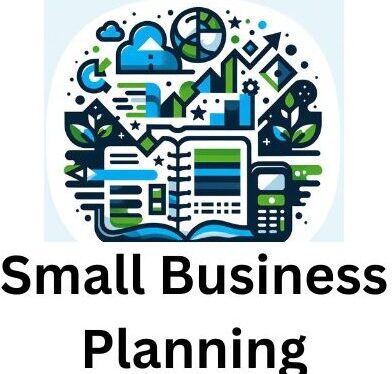
Cash flow is the heartbeat of any small business. Without money flowing in and out smoothly, even the most promising businesses can hit a rough patch. It’s more than just numbers on a balance sheet; it tells the story of how well a business can cover its expenses, pay its employees, and invest in future growth.
A lot of small businesses stumble because of cash flow woes. Sometimes it’s about timing, like when you’ve got more going out than coming in because of delays in customer payments. Or maybe it’s unexpected costs popping up when you least expect them. Keeping track of these things not only helps in staying afloat but also in planning for those rainy days.
Let’s break it down with some examples. Take a small bakery – it needs to buy ingredients weekly but might not see returns until the end of the month when bills roll out. Or a freelance consultant, who has to manage without a steady paycheck, fluctuating with contract wins and losses. These real-world scenarios underline how cash flow challenges show up in different industries, yet share core themes.
Addressing cash flow isn’t just about fixing issues; it’s about learning to anticipate them. The more you understand your cash flow patterns, the better you can forecast and strategize. It’s like being ready for anything – you plan ahead, keep an eye on your cash runway, and know when to tighten or loosen the purse strings. This type of financial awareness lets you stay on top of your game no matter what comes your way.
Streamlined Banking Practices for Effective Cash Management
Choosing the right bank might seem like just another task on your never-ending to-do list, but the right banking partner makes a huge difference in how you manage your cash flow. Smaller, local banks often provide personalized services and potentially more beneficial terms compared to larger banks. Make sure they’re offering the tools and resources that fit your business needs.
Digital banking tools are worth their weight in gold when it comes to managing your cash efficiently. Many banks now offer mobile apps that let you track all your transactions in real-time, right from your smartphone. It’s like having a bird’s eye view of your finances, helping you catch any hiccups before they become big problems.
Having a separate business bank account should be a non-negotiable. Mixing personal and business finances is just asking for trouble. Not only does it simplify your bookkeeping, but it also makes tax time a lot less stressful. Plus, it gives you a clearer picture of where your business stands financially and helps you make data-driven decisions.
Bank accounts aren’t just for holding your money—they can be powerful tools for managing cash flow. Consider setting up one for everyday transactions and another for savings or unexpected expenses. This way, your working cash doesn’t get tied up, and you’re better prepared for unforeseen costs.
Reconcile your bank statements regularly. Besides catching any errors or fraudulent transactions, this practice keeps you informed about your cash status and aligns your records with the bank’s. It’s one of those small habits that pays off big time in maintaining a healthy cash flow.
Leveraging Financial Forecasting and Budgeting
Financial forecasting might sound intimidating, but at its core, it’s about predicting the financial health of your business over time. This isn’t crystal ball stuff—it’s strategic planning based on available data. Knowing how much money you’ll have on hand next month can make all the difference in keeping your business running smoothly.
Creating a budget is like drawing a roadmap for your finances. It outlines where your money goes and helps you avoid those all-too-common pitfalls of overspending or underestimating costs. Starting with a basic budget doesn’t have to be overly complex; list your expected income and fixed expenses, then adjust as needed for variable costs.
Budgeting isn’t a once-and-done deal. Keep it alive by regularly updating and reviewing it. This ongoing process ensures you’re prepared for any changes, like an unexpected drop in revenue or a sudden expense. It’s about staying flexible and responsive to your business’s changing needs.
Numerous software options can help you streamline your forecasting and budgeting. These tools let you input your financial data and generate detailed reports, giving you a clear vision of your financial future. They’re like having a financial advisor at your fingertips, showing you patterns and warning signs you might have missed otherwise.
Understanding your financial forecast and budget helps you make informed decisions. It allows you to strategize for growth while avoiding financial quagmires. You become more proactive instead of reactive, positioning your business for not just survival, but real success.
Maximizing Cash Flow through Strategic Financing
Financing doesn’t have to mean burying yourself under a mountain of debt. Understanding the variety of financing options out there helps keep cash flow healthy and stable. Whether it’s taking a loan, applying for a line of credit, or exploring alternative financing, knowing what works best for your situation is key.
Different options come with different conditions. Term loans, for example, give you a lump sum that you repay over time, while revolving lines of credit offer flexibility to borrow as needed. But the trick is understanding your cash flow needs and matching them with the right financing type.
Strategic financing can also involve seeking investment or partnerships. Sometimes, bringing in someone who believes in your business can boost your cash flow without putting pressure on it. It’s not just about money; it’s about adding smart financial partners to your team.
Mitigating risks means negotiating terms that don’t choke your cash flow. Look for lenders willing to offer flexible payment schedules, or lower interest rates based on good performance. Don’t shy away from asking for what aligns best with your business strategy.
Proper financing enables you to seize opportunities without waiting for the perfect time. Improving cash flow with strategic choices means your business can expand when it needs to, handle emergencies, or embark on new ventures—all without the constant worry of financial constraints.
Optimize Cash Flow with Efficient Invoice and Payment Systems
Timely invoicing isn’t just about speed; it’s about keeping your cash flow on track. The quicker you send out invoices, the sooner you can expect payment. It’s a simple move that can greatly ease cash flow pressures.
Digital invoicing platforms streamline this process, letting you automate much of the work and even send reminders if payments lag. These tools save time and cut back on errors, ensuring you get paid faster and more reliably.
Flexible payment solutions encourage clients to settle their bills sooner. Offer multiple payment options—credit cards, bank transfers, and online payments—to make it as convenient as possible for customers. The fewer barriers, the better for everyone involved.
Keeping track of your accounts receivable is crucial. Regularly follow up on outstanding invoices and consider offering discounts for early payment if it fits within your financial framework. This not only fosters a strong relationship with your clients but also ensures a healthier cash cycle.
Securing your cash flow with these effective systems means you’re building a financial buffer for your business. It helps cushion against market uncertainties and allows you to plan future investments confidently. Less time worrying about collecting payments means more time focusing on growth and innovation.
Here’s a little transparency: Our website contains affiliate links. This means if you click and make a purchase, we may receive a small commission. Don’t worry, there’s no extra cost to you. It’s a simple way you can support our mission to bring you quality “Business Planning content.”

This article provides invaluable insights into managing cash flow effectively. The emphasis on selecting the right banking partner and utilizing digital tools resonates with the current business landscape. Maintaining separate business accounts and regular reconciliation are fundamental practices that can prevent financial discrepancies. The advice on financial forecasting and budgeting is particularly beneficial for anticipating challenges and making informed decisions. Implementing these strategies can significantly enhance a small business’s financial health and operational efficiency.
Thanks for the great article on managing cash flow for small businesses. Do you think this is the biggest issue that small businesses face? I know some small business owners and some are great and have practices in their daily running of the business that keep their cash flow flowing and others are not disciplined with their daily running, such as constantly taking cash out from their till for their discretionary spending then struggling to pay wages and always chasing their tails.
Thanks for the comment.
I had a business consulting practice for several years specializing in small businesses. Cash Flow is the most important thing for business owners to grasp. I have seen cases where owners totally lack knowledge which can lead to disaster. The most difficult owners to educate were those that had cash businesses such as companies in the food service industry. Cash forecasting is something that has really helped.